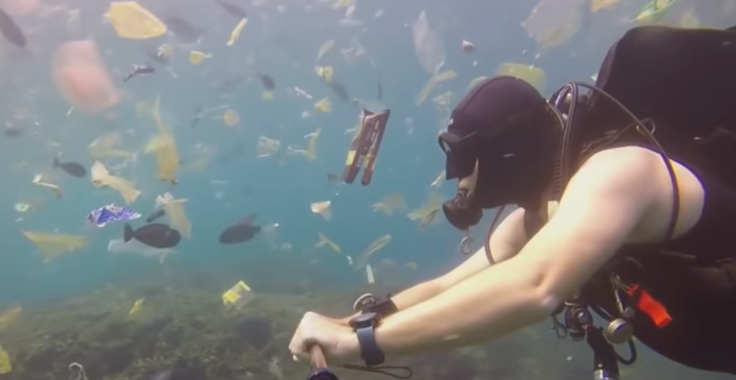There are many items that are being sold as environment-friendly products. But are these truly eco-friendly? As per a new study, the plastic dishes and utensils which are sold as eco-friendly items, actually do not biodegrade in the marine environment. Instead, these products affect marine life like other regular disposable dishes.
In this new study, the researchers compared the impact of the certified disposable dishes and regular use-and-throw dishes on the marine environment. Their study revealed that at least in the short term, both types of these items have similar negative effects.

Professor Noa Shenkar who led the study along with research student Guillermo Anderson said that bioplastics are made of natural materials and, "in that sense, they are more beneficial environmentally speaking." But these products may also contain toxins, which are present in regular plastic dishes, "and they do not biodegrade quickly in the aquatic habitat," said the researcher.
As per Anderson, in the past few decades, substances are known as 'bioplastics' became popular on the market that is made of "natural, renewable materials, and biodegrade relatively fast under certain conditions." But their conditions are not usually met, said the study researchers. A significant amount of these plastic dishes ends up in the water, but it does not break down in the marine environment.
The Research
When the study researchers put the so-called eco-friendly plates underwater near Israel's Eilat, and in a marine lab, they found that after three months the plates had puffed up after absorbing the water but there was no sign of breaking down.
The study was completed by the School of Zoology at the George S. Wise Faculty of Life Sciences and the Steinhardt Museum of Natural History, Israel National Center for Biodiversity Studies, Tel Aviv University. It was found that the eco-friendly plastics contain microparticles which are dangerous to marine life when consumed.
The lead author of the study said the research findings demonstrate the urgent need to update the standards for eco-friendly disposable utensils, and for clearer consumer explanations. "But, until that happens, this is an important consideration when spending good money on disposable dishes with bioplastics seals. While you may be calming your conscience, you're still liable to be polluting the environment," added Shenkar.
Over the years, plastic has become the biggest form of pollution in the world's oceans. Non-biodegradable plastic materials in seas and estuaries can harm seabirds, fish, and other marine animals. The inhabitants of the world oceans who ingest such materials can experience digestion problems. Even microplastics, the tiny bits of polyethylene or polypropylene, linger in the water, can also pose a massive risk.
As per the World Wide Fund for Nature (WWF), 914 species are affected by plastic debris and over 11 million metric tons of plastic float in the ocean each year. The non-profit organization is now encouraging people to sign a petition for the "Plastic Pollution Treaty" to help the ocean become plastic free.
Almost 2 million people have signed the petition calling for a #PlasticPollutionTreaty. Now businesses are recognizing a need for a UN treaty to #StopPlasticPollution as an important measure to solve this crisis. Join the movement today: https://t.co/b6QppXnrln
— WWF (@WWF) October 21, 2020









